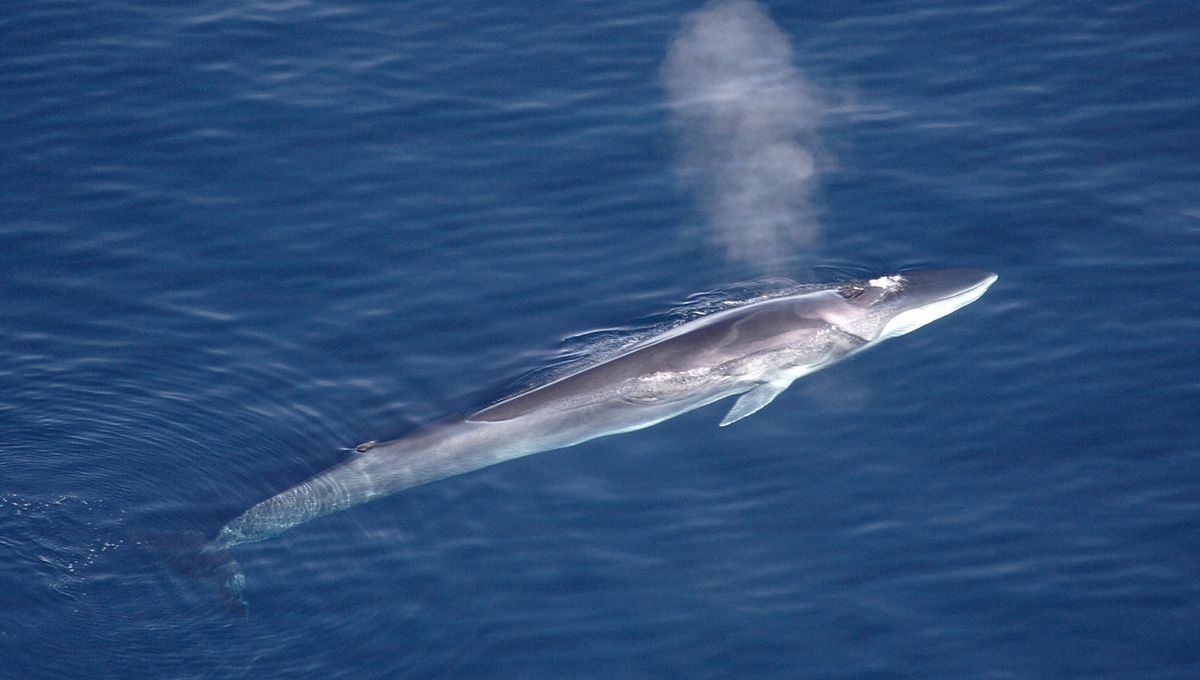
Japan is looking to revitalize its dying whaling industry – and the unveiling of their new “mothership” shows they mean business.
Japan’s new whaling factory ship, the Kangei Maru, set sail on its maiden voyage from the port of Shimonoseki on May 21, according to Japanese media.
The $48 million ship is a colossus, measuring 112.6 meters (369 feet) long and 21 meters (68 feet) wide, and weighing around 9,299 tons. It’s been designed to travel distances up to a range of 13,000 kilometers (almost 8,100 miles) sufficient to travel to the Antarctic Ocean.
The so-called mothership will allow smaller whaling boats to bring back harvested whales to a central hub. According to Kyodo Senpaku, the whaling company that owns the Kangei Maru, the vessel even contains an onboard processing unit where the whale meat is butchered, checked for quality, and frozen.
“We will work as one to maintain whaling culture for eternity,” Hideki Tokoro, president of Kyodo Senpaku, told reporters during the ship’s departure ceremony.
The news comes after the Government of Japan announced on May 9 that whalers will now be allowed to hunt fin whales, bringing the number of commercial whaling species in the country to four, along with minke whales, Bryde’s whales, and sei whales.
Japan’s decision to ramp up its whaling operations was met with outrage from international conservation organizations who described the move as an “appalling step backwards.”
“These new plans to hunt fin whales are incredibly alarming. These are the second biggest whale on earth. Killing whales causes significant suffering due to the size of the animals, not to mention the fact that considerable time often passes between the first harpoon strike and death,” Nicola Beynon, head of campaigns at the Australian branch of the Humane Society International (HSI), said in a recent statement about the launch of Kangei Maru.
“All whale species are battling a range of threats in their marine environment including climate change, noise pollution, ship strikes and fisheries bycatch. There is no nutritional, scientific or moral justification for killing these magnificent ocean giants, so the launch of the Kangei Maru is a chilling sight at a time when the imperative to conserve rather than kill whales is so urgent,” continued Adam Peyman, HSI’s director of wildlife programs.
Japan resumed commercial whaling in June 2019 after its controversial withdrawal from the International Whaling Commission (IWC), the intergovernmental panel that regulates the whaling industry. Commercial whaling has been banned since the IWC’s moratorium in 1982, although it continued to allow countries to kill whales for special purposes, such as scientific research and Aboriginal Subsistence Whaling.
Over 80 nations signed the agreement that came into being in 1986. However, several countries – namely Norway, Denmark/Greenland, Russia, Iceland, and Japan – continued to flout the ban and hunt whales under the guise of scientific research.
Japan’s latest push to bring back whaling was accompanied by a savvy PR campaign that attempts to respond to the “one-sided anti-whaling media that dominates the world.” They claim that many whale populations have recovered to such an extent they are a “concern for marine ecosystems, consuming several times more fish than humanity’s entire fishing catch.”
In reality, some whale populations have recovered in recent decades – primarily because of the IWC halt on whaling – but many have failed to recover to pre-whaling levels. Those that have recovered now face a myriad of new species threats, from climate change and pollution.
This is all without mentioning the slow, agonizing deaths that whales are subjected to in commercial whaling hunts.
Source Link: Japan Unveils New Whaling Mothership Set To Revitalize The Industry